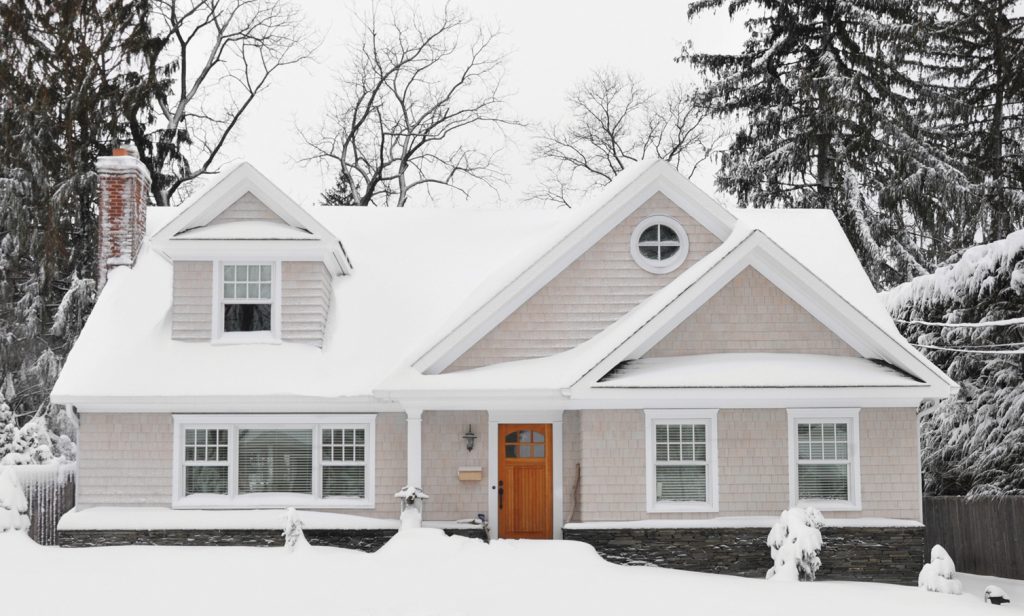
Whether it’s protecting your pipes or trimming your trees, begin to make your home safer against snow, ice and colder temperatures this winter. It’s never too early to start winterizing your home.
Winter will be here before we know it. The leaves are changing color, and the air is cool and crisp, and we’ve put away our summer attire and will soon be opting for warm sweaters, long pants and winter coats.
The change of seasons is a good time to winterize your home to make sure your home is prepared for the colder winter months ahead. Keep the cold out, the heat in, and your energy bill down with these cost-effective tips.
- Check the gutters: Clean out the leaves and install gutter guards (if feasible).
- Fiberglass insulation: For maximum heat retention, pack fiberglass insulation around basement doors, windows in unused rooms, and window AC units. Make sure your attic floor is insulated, too.
- Flush the water heater: Particles and sediment can collect over time in the bottom of your water heater, hindering the unit’s efficiency.
- Clockwise ceiling fans: Have your ceiling fans move in a clockwise direction so they push hot air along the ceiling toward the floor.
- Protect the pipes: Insulate pipes that could be susceptible to freezing.
- Seal the cracks: Caulk around holes and openings to help prevent cold air from seeping in. Install weatherstripping and seals around openings such as windows, doors, air conditioners and mail chutes.
- Draft guards: Place draft guards by the doors to prevent heat from escaping under the door in a drafty room.
- Replace filters: Regularly changing the filters in your HVAC system can significantly improve its efficiency and longevity.
- Have heating checked: Furnaces, boilers and chimneys should be serviced at least once a year to clear any buildup and to keep them running efficiently.
- Programmable thermostat: Keep the temperature down when you’re not home.
- Test your detectors: Residential fires are more common in winter, so it is important that all your smoke detectors work. Replace batteries as needed.
Improving your home’s thermal envelope can make it more comfortable and energy efficient. Low cost, simple measures like caulking and insulating can make a huge difference in the comfort level and lowering of the electric use in your home.



